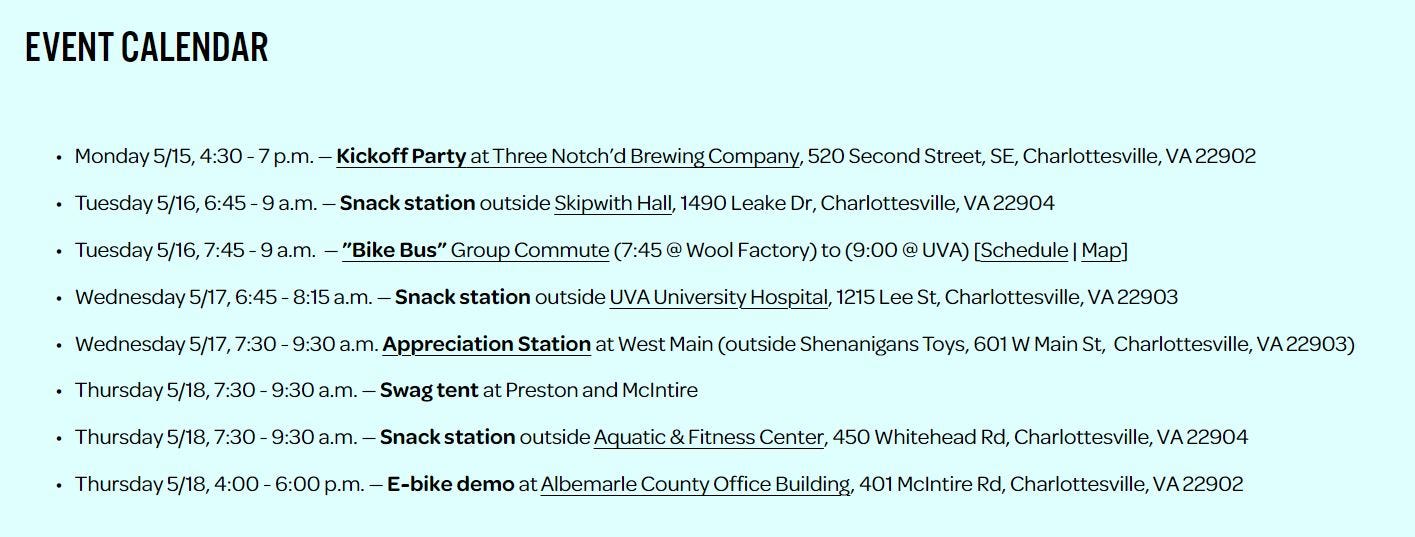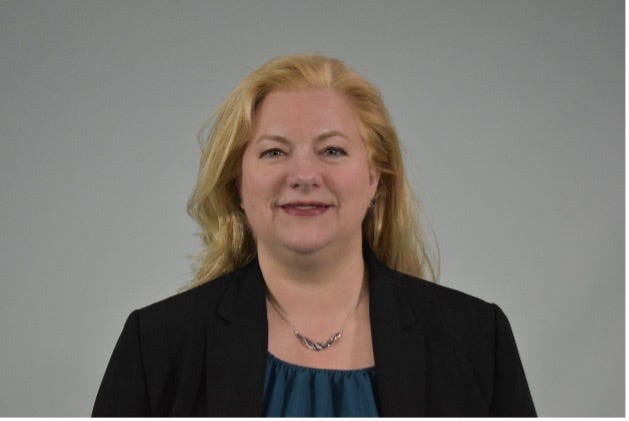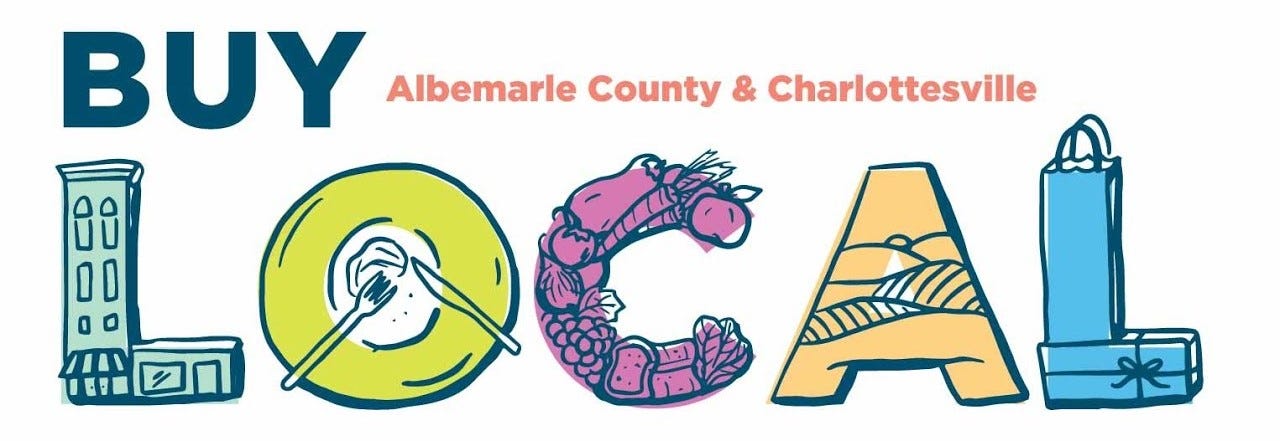May the 12th be with you. As in, there have been eleven days already in the fifth month. What shall we do now? Listen or read another installment of Charlottesville Community Engagement, a newsletter and podcast created to capture some of what happens in the area in and around the first word in title. I’m Sean Tubbs, always looking for another way to look at things just because.
On today’s show:
A veteran of Fairfax County has taken the top job in Greene County
Charlottesville’s NDS director lays out next steps for the development of a new zoning code
Area organizations want you to consider biking to work next week
The first of several forums for the Democratic primary race for the Charlottesville City Council was held earlier this week
First shout-out: Charlottesville Community Bikes
In this first subscriber supported shout-out, Charlottesville Community Bikes believes that bicycles can be a means to social change, addressing issues of equity, access, and inclusion. They provide free bikes to adults who need one, and have a special program that provides free bikes to children. Want to learn more or support their work? Check out the Silent Auction that is currently underway right now to raise money for the organization. Visit charlottesvillecommunitybikes.org to learn more.
Greene County hires Fairfax official as new administrator
A government official with 28 years of experience in a northern Virginia locality has been named as the next administrator of Greene County.
Catherine Schafrik is currently the director of human resources in Fairfax County, where she has also served in information technology, transportation planning, and budget management.
“We are very pleased that someone of Ms. Schafrik’s caliber will join our team as the next Greene County administrator,” said Board Chair Dale Herring. “We look forward to working with her and to many years of success as we work together to ensure the best possible future for Greene County and its citizens.”
Interim Administrator Brenda Garton will continue to serve until June 26 when Schafrik starts work. This is the second time Garton has served as a caretaker in Greene having served in 2018 after John Barkley stepped down.
Barkley was replaced on a permanent basis by Mark B. Taylor who resigned the position last September to become school superintendent in Spotsylvania County.
Schafrik takes over a county that plans to make significant investments in water and sewer infrastructure, including the construction of a new reservoir at White Run to serve as a water supply for the county’s designated growth areas.
“I look forward to joining the Greene County community,” Schafrik is quoted in the release. “I appreciate the opportunity to add value and make a difference while doing meaningful work that I love.”
Greene County Supervisors will take up the draft Comprehensive Plan at its next meeting on May 23.
NDS Director lays out next steps for Charlottesville zoning
Charlottesville City Council and the Planning Commission will hold another work session on the zoning code on May 23. The topic will be the third module as well as a review of requests for changes to the draft zoning map.
“Next week we will have module three out and I believe the comment period is through mid-June,” said James Freas, the city’s director of Neighborhood Development Services.
Freas said the goal is to have a consolidated draft of all three modules by the end of July as well as a new zoning map.
“And at that point it is a baton hand-off to you guys,” Freas said. “That means that we open up the public hearing and our recommendation to you would be that you guys devote an entire meeting to the public hearing and then move into the deliberations and decision-making in subsequent meeting or meetings.”
Commissioner Hosea Mitchell said he wanted his colleagues to proceed in an organized fashion.
“We’ve got to have a very structured way of going about our deliberations and we organize decision stair-steps so that we can step our way through the decisions as opposed to attempting to bite off the whole thing at once,” Mitchell said.
To catch up on the conversation to date, here are some previous articles:
Charlottesville’s zoning info slightly delayed, May 13, 2022
Charlottesville’s zoning rewrite is about to enter next phase, June 15, 2022
Charlottesville releases first set of new draft zoning rules including new map, February 4, 2023
Details of second module of Charlottesville’s new zoning code unveiled at work session, April 11, 2023
Planning Commission gets a spoiler on third module of Charlottesville’s draft zoning, April 13, 2023
Council and PC hold another work session on Charlottesville’s draft zoning, April 29, 2023
Groups encouraging people to bike to work next week and providing food
May is National Bike Month according to the League of American Bicyclists and beginning Monday communities across the country like Charlottesville will be observing Bike to Work Week.
“And what that means is that we’re encouraging everyone to bike to work, bike to school, wherever you’re going,” said Josh Carp of the group Livable Cville.
That organization and several others are holding events throughout the week to promote the activity beginning with an event at Three Notch’d Brewery on Monday at 4:30 p.m.
Snack stations will be held at various locations on various mornings beginning with one outside of Skipwith Hall on Tuesday, one outside the University of Virginia hospital on Wednesday, and out outside the UVA Aquatic and Fitness Center on Thursday.
There will be a bike bus commute from the Wool Factory to UVA on Tuesday and an e-bike demo at the Albemarle County Office Building on Thursday.
“We have our full schedule on our website at biketoworkcville.org and we’ll be pushing out different notifications about different events as they happen on social media,” Carp said.
Carp said Livable Cville wants people to try out biking to help encourage people to drive significantly less.
“It’s great for the climate,” Carp said. “Obviously riding a bike uses almost no carbon compared to even the most efficient car. It’s much more climate friendly. We also want to build a community around biking in Charlottesville.”
Carp said that means a need to build more infrastructure for biking in the community to make it safer.

Sponsored message: Buy Local
Charlottesville Community Engagement’s continued existence means that many of you support local information. Want to support some local businesses as well? The Buy Local campaign is in full swing, and both the Albemarle and Charlottesville Offices of Economic Development want people to consider spending locally as they shop throughout the year.
The Buy Local campaign highlights small businesses within Charlottesville and Albemarle County through a multi-channel, multimedia promotional and educational campaign designed to reinforce how important supporting area small businesses is to the local economy.
Locally-owned, independent businesses with a brick-and-mortar presence in the City or County interested in being featured in the campaign should visit www.showlocallove.org or contact info@showlocallove.org.
For more information on the Buy Local campaign, visit www.ShowLocalLove.org or follow us on Facebook and Instagram @BuyLocalCvilleAlbemarle or on Twitter @BuyLocalCville.
Four of five Democrats explain their views on housing at campaign forum
There are 39 days until Virginia’s political parties hold primary elections to decide who will represent them on the general election ballot in November. Early voting has been taking place for a week now.
Three days ago in partnership with the Free Enterprise Forum, I helped moderate a campaign forum for candidates seeking to be one of three Democratic nominations for City Council.

Unfortunately, candidate Dashad Cooper was not able to attend the event and he will be given the four questions that were asked at the event. I’m still working out exactly how that will proceed.
But four of the candidates were present and the event began with opening statements including one from former City Councilor Bob Fenwick who said the cost of housing in Charlottesville was too high even when he and his wife moved here over 50 years ago.
“We could not afford to live in Charlottesville so we rented a house on Bruce Avenue for about a year, one floor, and then I built a house out in Earlysville,” Fenwick said. “It’s not a new problem and it’s not an easy problem. There are no magic beans that we have that will solve the housing problem. It’s something we have to keep ahead of all the time.”
Incumbent Michael Payne is seeking a second term and said that significant progress has been made such as a commitment to spend $10 million a year on affordable housing. In his opening statement, Payne said there is more work to be done.
“There’s still a tremendous amount of work to do in building out our bike-ped infrastructure, in implementing our affordable housing and climate action plans fully,” Payne said. “And I can use the experience I’ve had on Council to continue that work and use the experience I’ve had on Council to make sure that we actually follow through on these plans and move beyond just talking about what we’d like to do.”
Natalie Oschrin is one of two newcomers in the race and she is a wedding planner who has lived in Charlottesville since she was less than a year old.
“Regular hard working folks should be able to find a place to live in the city where they work,” Oschrin said. “It should be safe to walk on continuous sidewalks and bike in lanes that aren’t after thoughts. Our public transit system should be frequent, reliable, and usable. Our community should be safe from gun violence. Our kids and teachers should have the schools they deserve.”
Oschrin also pointed out in her opening statement that there has been a woman on Council since 1971 and that she is the only such candidate in the race.
Incumbent Lloyd Snook has lived in Charlottesville since he was 8 aside from college and law school. He said he had two slogans he used when he ran four years ago.
“The first was ‘Let’s Make Charlottesville work again,’” Snook said. “We had had a really dysfunctional government for a number of years, dysfunctional departments, dysfunctional leadership, dysfunctional Council. The second was a more substantive platform that talked about affordable housing, it talked about adopting a climate action plan, and it talked about the renovations of our schools and Buford being the one that’s most prominent in that respect.”
Snook said the Council has made progress in all of these areas including the $90 million renovation and expansion of Buford Middle School and he wants another four years to see it through.
The first question sought the candidates’ position on the current draft zoning ordinance. Fenwick took the opportunity to read from emails he’s been sent about the topic.
“One lady said ‘I feel like I’m being bull-dozed,’” Fenwick said. “Another said: ‘All this for at best six affordable units.’ And a gentleman wrote, obviously well-educated, he said ‘this is alchemy. We were promised gold but we’ll get lead.’”
Fenwick said he believed many people in Charlottesville feel their views haven’t been heard in the Cville Plans Together conversation.
“The people who will be most affected are not a part of this process so that will be my focus, to make sure that the process is honest, fair, transparent,” Fenwick said.
Payne agreed with Fenwick’s earlier point that there are no easy answers but that the land use reform process is long overdue for a conclusion.
“I think one of the most striking statistics in Charlottesville is that the median household income for Black families is $39,000,” Payne said. “For white families that number is $86,000 and that speaks to one of the core inequalities of our city is that increasingly every single year there are more and more people who are shut out from being able to afford to rent, shut out from homeownership, and that is disproportionately affecting many members of our community who historically have been excluded from our conversations in the city.”
Payne said the entire reason for changing the zoning is to make it easier to build housing.
“And I think part of it is you have to legalize more affordable housing types throughout the city like duplexes, triplexes, smaller apartment complexes and that you can do that in a way that still maintains a feel of neighborhood scale, walkability, and I think those are goals that we can achieve together,” Payne said.
Oschrin said there is an affordable housing crisis in Charlottesville and she said a multi-pronged approach is necessary to address different needs.
“The city has made an $18 million commitment in the latest budget toward affordable housing which is a great step in the right direction,” Oschrin said. “However, there can be subsidies all day but if there are not enough homes available, people will be left out.”
Oschrin said addressing housing insecurity will also address other social issues. She acknowledged that many are concerned about density.
“A lot of the concern stems from they think adding homes will also increase traffic on their street and I totally get that concern,” Oschrin said. “Cars are noisy. They pollute. They are heavy and they are dangerous machines. Allowing and encouraging more homes in town must be paired with investments to alternatives to car traffic.”
Snook said to understand the need for housing in Charlottesville, people need to understand the growth that has occurred and is expected to continue.
“What drives growth in Charlottesville is the University of Virginia which has been growing at roughly one percent a year year over year over year since 1970,” Snook said. “It has been paired with a relative lack of production of housing.”
Snook said that’s driven up the cost of housing and he said efforts to intervene need to help households between 30 percent and 60 percent of the area median income. He also said the new zoning code appears to be set up to help those with higher incomes.
“We need to solve affordable housing through other mechanisms and this zoning ordinance unfortunately the way I’m looking at it doesn’t get there,” Snook said.
Candidates also answered questions about economic development, the budget, and qualities desired in a city manager. I’ll have responses to that last question in the next installment of Charlottesville Community Engagement.
The full video is available on the Free Enterprise Forum website.
Reading material:
Mary Baldwin announces next president, Katherine Schulte, Virginia Business, April 14, 2023
Greene BOS Hires Veteran Fairfax County Official For County Admin Job, Chuck Jackson, Greene Journal, May 10, 2023
Charlottesville City Council candidates hold forum, Keagan Hughes, May 11, 2023
End notes for #533
And we’re at the end of another week and I got to three editions. The goal in the future is to have one of these out each day, and that’s not an unrealistic goal. It has now been three years since I first launched a Patreon account for Town Crier Productions to prepare the runway for this newsletter.
Now there are nearly 2,200 subscribers and around a quarter are paying something to help sustain the work. I have faith that there are enough people who want to pay for beat journalism about the decisions that will shape this community’s future.
And if you become one of the hundreds of Substack subscribers, Ting will match your initial payment whether it’s at $5 a month, $50 a year, or $200 a year.
And if you sign up for Ting at this link and enter the promo code COMMUNITY, you’ll get:
Free installation
A second month for free
A $75 gift card to the Downtown Mall
Thanks to Wraki for incidental music in the podcast, which you can’t hear unless you listen to it. Check out the work on BandCamp!

















Share this post